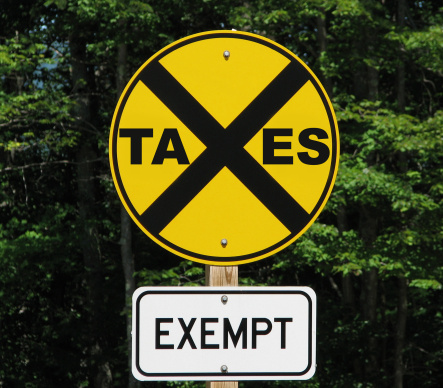Big Changes Coming for Puerto Rico’s Act 20 Tax Incentive Program
It appears that Trump’s tax plan is bringing big changes to Puerto Rico’s Act 20 tax incentive program. These changes impact Puerto Rico because a PR corporation is treated as a foreign corporation for US purposes. Here are the changes coming to Puerto Rico’s Act 20 tax incentive program.
Note that this article is a compilation of my conversations with various tax experts in Puerto Rico. This is what they think will happen to Puerto Rico’s Act 20 under the Trump tax plan. This is not a statement of the law or tax advice… it’s pure speculation.
The IRS has not issued any guidance on these points. So, we’re left to conjecture and assumptions on how Trump’s tax plan will affect Act 20. We probably won’t have a clear understanding of these laws until November or December. By then, the 2018 tax year will be nearly over and you’ll be left holding the bag.
Here’s the guidance being put out by most of the major firms in Puerto Rico on the tax incentive programs:
The Tax Cuts and Jobs Act introduced major changes to the international tax provisions of the United States Internal Revenue Code of 1986, as amended, which generally govern the tax consequences to US persons with operations through foreign corporations, including Puerto Rico Act 20 entities. Some of these changes may have an impact on the tax structure of Act 20 entities operating in Puerto Rico, at least with respect to US owners that do not become PR bona fide residents.
As a result of the new international tax provisions, US shareholders of Act 20 companies, which are controlled by US persons, who are not PR bona fide residents, may be subject to (i) a “toll tax”, (ii) a tax on deemed “global intangible low-taxed income” (GILTI) and a minimum base erosion and anti-abuse tax (BEAT) in the United States, and thus US tax deferral on the income derived in Puerto Rico may be lost.
This means that Puerto Rico’s Act 20 is still viable for those living in Puerto Rico. If you qualify for residency in the territory, your income is excluded from US taxation under IRC Section 933. Thus, changes to the US tax code make no difference to you. Your Puerto Rico sourced income, including Act 20 and 22 income, is taxed only in Puerto Rico.
If you’re a resident of Puerto Rico, you pay PR ordinary income tax on your salary. Then you pay corporate tax on your net profits at a rate of 4%. Finally, you take out those profits as a tax-free dividend.
Residents do not retain earnings in their Act 20 company. Residents of Puerto Rico take out their profits as earned as tax-free dividends.
Residents of the United States are in a different boat… and that boat appears to have sprung a leak.
When a US resident sets up an Act 20 company in Puerto Rico, they generate Puerto Rico sourced income based on the work done in PR by their employees. Any income generated from work performed in the United States is US source and taxed in the US. Any income generated by work done in Puerto Rico is PR sourced and taxable in Puerto Rico.
The Puerto Rico corporation pays corporate tax at 4% and retains the remainder within the company. The benefit to the US resident is tax deferral. They’re paying 4% to hold the profits in the corporation without US tax. They only pay the IRS when they distribute those retained earnings years in the future.
It appears that Trump has eliminated retained earnings in foreign corporations that are owned by US residents. If companies can no longer retain profits abroad, the benefit of tax deferral is lost to the US resident shareholder.
If this analysis of Puerto Rico’s Act 20 holds up after regulations are issued, Act 20 will only benefit those willing to relocate to the island. This is what we’re telling all new applicants… to receive the tax benefits of Act 20 you must become a resident and spend 183 days a year on the island.
This change in the ability to retain earnings offshore would also apply to all foreign corporations owned by US residents. If you live in the US, you may have lost the ability to retain earnings in an offshore corporation, even when you have a business abroad.
The offshore rules are even more muddled than Puerto Rico. Companies might be able to retain profits from sales to foreign countries and not sales to the United States. Offshore corporations owned by US shareholders that earn in excess of the Foreign Earned Income Exclusion appear to have also lost the ability to retain earnings abroad.
Also, if the foreign corporation is owned by a US corporation, you might have more room to maneuver. This is one of the factors limiting Puerto Rico’s Act 20. Act 20 companies must be owned by an individual or individuals. Currently, you can’t own an Act 20 company inside a US corporation.
If Puerto Rico changes the rules for ownership and allows US shareholders to insert a US corporation in between themselves and their Act 20 business, they might cut corporate taxes in half. It appears the US corporation would pay 10.5% tax under Trump’s tax plan minus the 4% tax paid to Puerto Rico (using the foreign tax credit).
However, the value of this maneuver is dubious. The US shareholder would then pay US tax when he or she takes the money out of the US corporation as a dividend. In such a situation, many will decide to move their business back to the United States, as the law intended.
And, what about those who have been operating their Act 20 company for a few years and have accrued retained earnings? You’re screwed.
Retained earnings in foreign corporations must be repatriated to the United States. Retained earnings will be taxed at 15.5% and you have up to 8 years to pay this tax.
I hope you’ve found this article on big changes coming for Puerto Rico’s Act 20 tax incentive program to be helpful. If you already have an Act 20 company with retained earnings and require more information, please contact me at info@premieroffshore.com. I’ll refer you to an experienced attorney on the island who can research your particular situation.
If you wish to move to Puerto Rico under Act 20 and 22, we will be happy to help you set up under the new law.












Leave a Reply
Want to join the discussion?Feel free to contribute!